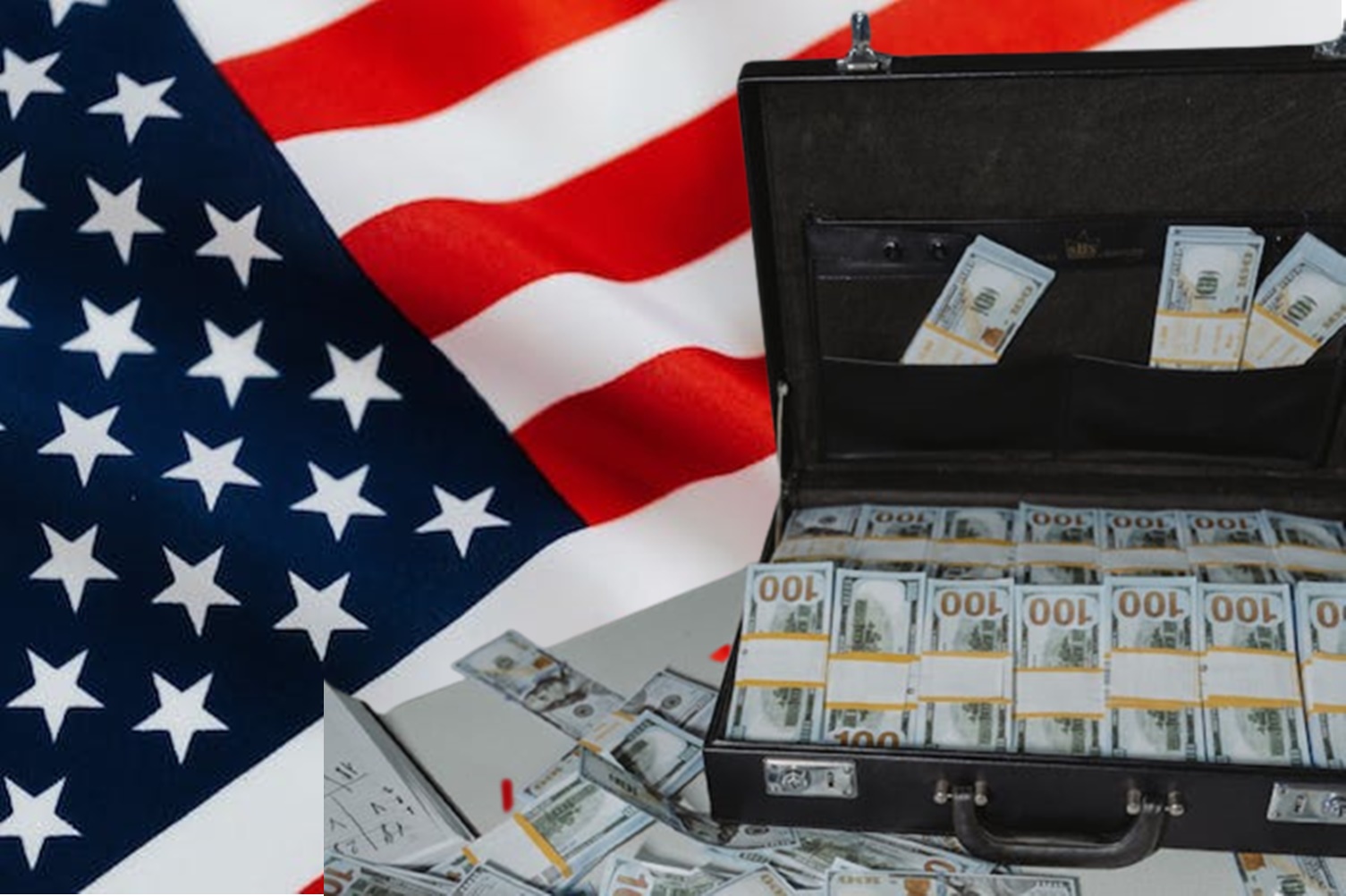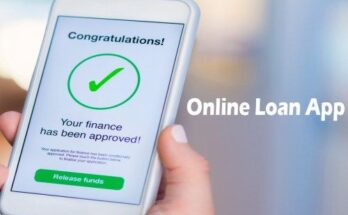Student Loan Forgiveness Update: In the ever-evolving landscape of education financing, one topic that consistently resonates with millions of Americans is student loan forgiveness.
This comprehensive guide aims to provide up-to-date information and insights into the current state of student loan forgiveness programs, their impact, and what future developments might look like.
Recent Changes in Student Loan Forgiveness Policies
The landscape of student loan forgiveness has recently undergone significant changes, impacting borrowers nationwide. This article aims to provide a clear overview of the latest updates and changes in these policies.
Latest Updates in Student Loan Forgiveness
The recent revisions to student loan forgiveness policies mark a pivotal shift in how borrowers can manage and eliminate their student debt. These changes are aimed at providing more inclusive and accessible paths to loan forgiveness. Understanding these updates is crucial for borrowers to make informed decisions about their finances.
Impact on Borrowers
The impact of these policy changes on borrowers is profound. For many, it means new opportunities to reduce or eliminate their student debt burden. These changes can affect eligibility criteria, repayment plans, and the overall process of loan forgiveness. Borrowers need to be aware of how these updates can affect their individual situations and plan accordingly.
However, staying informed about the latest student loan forgiveness policies is essential for borrowers. These changes could open new doors for financial relief and stability, making a significant difference in the lives of many.
Eligibility Criteria for Student Loan Forgiveness
Understanding if you’re eligible for student loan forgiveness can be a significant step towards financial freedom. The updated forgiveness policies have specific criteria that must be met. Here’s a detailed examination of who qualifies:
Loan Type and Status: Not all student loans are eligible. Federal student loans, particularly Direct Loans, are typically included. Private loans and loans in default may not qualify.
Repayment Plan: Borrowers on income-driven repayment plans might be more likely to qualify.
Employment Requirements: Some programs require you to work in certain public service jobs or non-profit organizations.
Repayment History: Consistent repayment history, even if it’s based on income, often plays a role in eligibility.
Educational Institution: Loans from accredited institutions are usually considered. Those from for-profit colleges under scrutiny may not be eligible.
Income Level: There might be income caps; typically, lower-income borrowers are prioritized.
Program-Specific Rules: Each forgiveness program has unique rules. For instance, the Public Service Loan Forgiveness (PSLF) program has specific criteria different from Teacher Loan Forgiveness.
To determine if you’re eligible, start by reviewing your loan documents to understand the type of loan you have. Check with your loan servicer and the U.S. Department of Education’s website for the latest information on eligibility criteria. Remember, staying informed and proactive is key to navigating the path to loan forgiveness.
How to Apply for Student Loan Forgiveness: A Comprehensive Guide
This guide is designed to help you understand the steps involved in applying for student loan forgiveness and provide you with essential tips to enhance your chances of a successful application.
Step-by-Step Guide to the Application Process
Determine Your Eligibility: Before you begin, it’s crucial to confirm if you qualify for student loan forgiveness. This typically depends on factors like the type of loan, your occupation, and repayment history.
Gather Necessary Documentation: Collect all relevant documents such as your loan information, proof of income, and employment verification. This will ease the application process.
Choose the Right Forgiveness Program: There are various programs like Public Service Loan Forgiveness (PSLF), Teacher Loan Forgiveness, etc. Research each program to find the one that aligns with your qualifications and career.
Complete the Application Form: Carefully fill out the application form for your chosen program. Ensure all information is accurate and up-to-date to avoid delays.
Submit Your Application: Once your application is complete, submit it as per the instructions. This could be through an online portal, via mail, or directly through your loan servicer.
Follow Up: After submission, keep track of your application status. Be prepared to provide additional information if requested by the loan servicer.
Tips for Ensuring a Successful Application
Stay Informed: Keep yourself updated with the latest guidelines and requirements of the forgiveness program you are applying for.
Be Accurate and Honest: Ensure all the information you provide in your application is accurate. Any form of misinformation can lead to rejection.
Seek Assistance: Don’t hesitate to ask for help. You can consult financial advisors, your loan servicer, or use resources provided by the Department of Education.
Meet Deadlines: Be mindful of deadlines associated with the application process. Late submissions can disqualify you from the program.
Keep Records: Maintain a file with all your application documents and correspondences. This will be useful for future reference and in case of any disputes.
Remember, patience and thoroughness are key. Applying for student loan forgiveness might be a lengthy process, but it’s a worthwhile endeavor that can lead to significant financial relief. Start your journey today with this guide and take a step closer to financial freedom!
Common Misconceptions and Clarifications about Student Loan Forgiveness
It’s essential to differentiate fact from fiction to make informed decisions. In this section, we’ll dispel some common misconceptions and provide factual clarifications based on the most recent updates.
Myth 1: All Student Loans Are Eligible for Forgiveness
Clarification: Not all student loans qualify for forgiveness programs. Federal loans are often eligible, but private loans typically are not. It’s crucial to understand the type of loans you have and the specific forgiveness programs they may be eligible for.
Myth 2: Loan Forgiveness Is Automatic
Clarification: Loan forgiveness is not an automatic process. Borrowers usually need to apply and meet specific criteria, such as working in certain professions or making a designated number of payments.
Myth 3: Forgiveness Means You Don’t Owe Taxes on the Forgiven Amount
Clarification: In some cases, the forgiven loan amount may be considered taxable income. However, under certain conditions and recent legislative changes, this may not always be the case. It’s important to consult with a tax professional for your specific situation.
Myth 4: Forgiveness Programs Will Cancel All Your Debt
Clarification: While some programs offer complete forgiveness, others might only forgive a portion of your loan. Understand the terms of each program to gauge how much of your debt can be forgiven.
Myth 5: Private Loan Forgiveness Options Are the Same as Federal
Clarification: Private loans often have different terms and conditions compared to federal loans. Forgiveness options, if available, may vary significantly.
Myth 6: You Can’t Make Extra Payments If You’re Pursuing Forgiveness
Clarification: Making extra payments can sometimes affect eligibility for certain forgiveness programs. However, it’s not universally prohibited and can depend on the specific program’s rules.
By understanding these key points, you can better navigate the complexities of student loan forgiveness and make decisions that align with your financial goals. Stay informed with the latest updates and consult with financial advisors for personalized advice.
Impact of Student Loan Forgiveness on Borrowers
Student loan forgiveness programs have a transformative impact on borrowers, offering not just financial relief but also new opportunities for personal and professional growth. In this section, we delve into the profound effects these programs have on individuals, supported by both personal anecdotes and compelling statistical data.
Personal Stories: A Window into Changed Lives
Hearing from borrowers themselves brings a human element to the discussion of student loan forgiveness. Personal stories highlight the emotional and practical benefits of these programs. For example, a recent graduate might share how loan forgiveness enabled them to pursue a dream career without the burden of debt. Another compelling story could be from a mid-career professional who, thanks to debt relief, was able to buy a home or invest in their child’s education. These narratives provide a vivid illustration of how loan forgiveness can be a turning point in people’s lives.
Statistical Data: The Bigger Picture
To complement these individual stories, it’s essential to examine the broader impact through statistical data. This data might include the average amount of debt forgiven per borrower, the percentage of borrowers who benefit from these programs, or the overall economic impact of loan forgiveness. For instance, statistics can show how loan forgiveness leads to increased consumer spending, higher credit scores, or improved mental health outcomes. By presenting this data, we can understand not just the individual benefits but also the ripple effects on the economy and society.
However, the impact of student loan forgiveness is multi-dimensional, affecting borrowers’ financial health, career choices, and overall well-being. Personal stories bring this impact to life, while statistical data provides a comprehensive view of its significance. This combination of anecdotal and quantitative evidence paints a clear picture of why student loan forgiveness is a crucial topic in today’s financial landscape.
Expert Opinions and Analysis: Unraveling the Future of Loan Forgiveness
Insights from Financial Experts and Education Policy Analysts
In the intricate world of finance and education policy, the perspective of experts is invaluable. We delve into the minds of seasoned financial gurus and education policy analysts to bring you top-tier insights. These professionals, with their deep understanding of market dynamics and education frameworks, provide a unique lens through which we can view the current state and potential future of loan forgiveness programs.
Predictions about Future Trends in Loan Forgiveness
The future of loan forgiveness is a subject rife with speculation and educated guesses. By analyzing current economic indicators, legislative trends, and educational policies, our experts paint a picture of what the future might hold. Will there be more inclusive policies, stricter eligibility criteria, or perhaps a complete overhaul of existing systems? These predictions are not just conjectures but are based on robust data analysis and years of experience in the field.
FAQ Section: Understanding Student Loan Forgiveness Updates
1. What Are the Latest Updates on Student Loan Forgiveness?
The latest updates on student loan forgiveness involve changes in eligibility criteria, application processes, and the amounts eligible for forgiveness. Keep up-to-date with official sources for the most current information.
2. Who Qualifies for Student Loan Forgiveness?
Eligibility for student loan forgiveness varies based on the type of loan, your occupation, income level, and other factors. Check the latest guidelines to see if you qualify.
3. How Do I Apply for Student Loan Forgiveness?
To apply for student loan forgiveness, you typically need to fill out an application through your loan servicer. Ensure you have all the required documentation ready and follow the latest application procedures.
4. Will Student Loan Forgiveness Affect My Credit Score?
Student loan forgiveness can affect your credit score in different ways. It’s important to understand how forgiveness might impact your financial profile and to consult with a financial advisor if necessary.
5. Can I Receive Student Loan Forgiveness If I’ve Already Paid Off My Loans?
Generally, student loan forgiveness programs are designed for current debt holders. If you’ve already paid off your loans, you might not be eligible for these programs.
6. Are Private Student Loans Eligible for Forgiveness?
Most student loan forgiveness programs are for federal student loans. Private student loans typically have different rules and may not be eligible for government-sponsored forgiveness programs.
7. How Long Does It Take to Process a Student Loan Forgiveness Application?
Processing times for student loan forgiveness applications vary. It’s important to stay informed about the processing timelines and to check with your loan servicer for updates.
8. What Should I Do if My Student Loan Forgiveness Application Is Denied?
If your application is denied, review the reasons for denial, check if you can rectify any issues, and consider reapplying. You may also explore other debt relief options.
9. Will There Be More Student Loan Forgiveness Opportunities in the Future?
The availability of student loan forgiveness programs can change based on legislative and policy decisions. Stay informed about any new developments or future opportunities.
10. Where Can I Find Reliable Information About Student Loan Forgiveness?
Reliable information about student loan forgiveness can be found on official government websites, through your loan servicer, and reputable financial advice platforms. Always cross-check information from multiple trusted sources.
Conclusion
As we conclude, let’s take a moment to revisit the key points from our comprehensive update on student loan forgiveness. This article provided an in-depth analysis of the recent changes and implications for borrowers. Understanding these updates is crucial for those impacted, as it offers clarity on how these changes may affect their financial future.
In the ever-evolving landscape of student loan policies, staying informed is not just advisable; it’s essential. We encourage our readers to remain proactive in seeking information and advice. Regularly checking official sources, consulting with financial advisors, and participating in community discussions can provide valuable insights and help you make informed decisions regarding your student loans.
Remember, knowledge is power, especially when it comes to navigating the complexities of student loan forgiveness. By staying updated and proactive, you can effectively manage your loans and work towards a more secure financial future.


